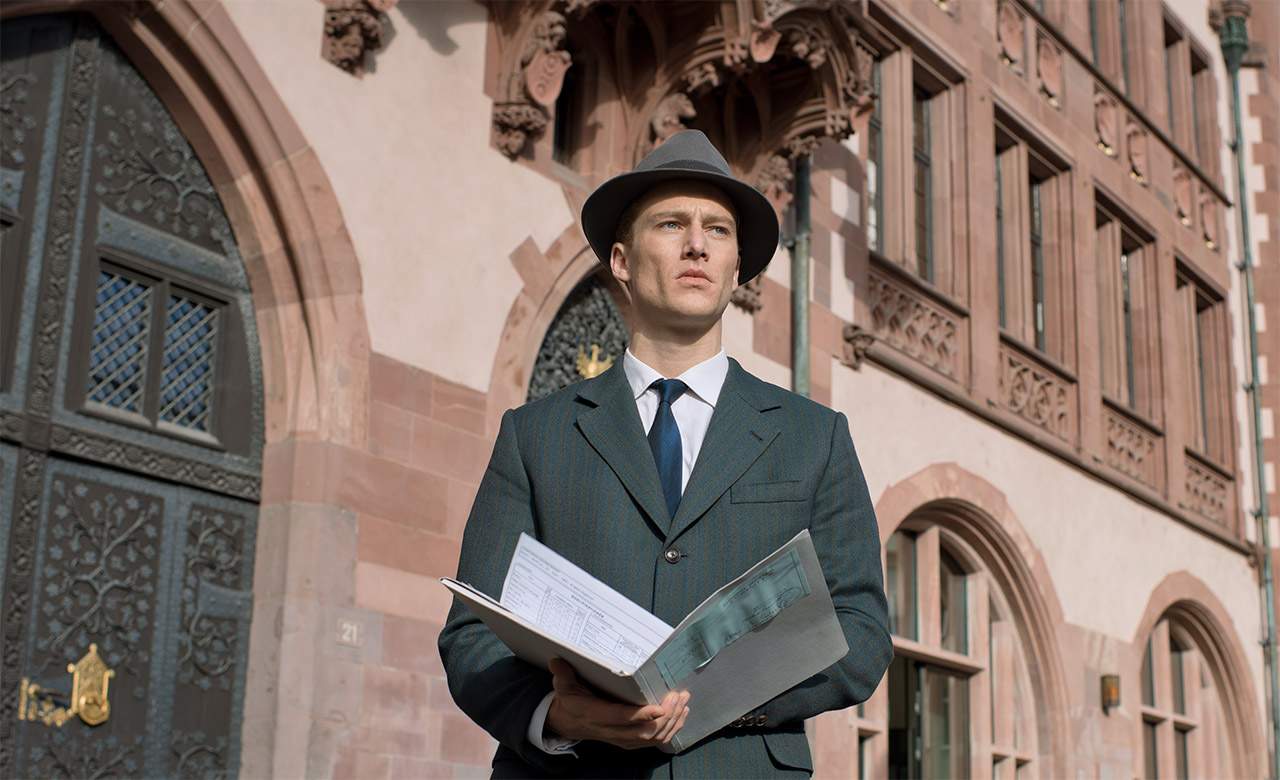Labyrinth of Lies
A compelling German drama about the aftermath of WWII.
Overview
While we've seen plenty of films set amidst the heat of battle, very few explore what happens next. Opening in West Germany in 1958, Labyrinth of Lies endeavours to understand how a divided nation attempted to recover from the atrocities of the Second World War, why many of its citizens tried to disregard their history, and the efforts required to bring war criminals to justice.
Though it might surprise modern audiences, some Germans in the wake of WWII claimed not to have heard of Auschwitz concentration camp. Others decided not to speak about it, or the war in general. Prosecutor Johann Radmann (Alexander Fehling) learns of his compatriots' willing ignorance when journalist Thomas Gneilka (Andre Szymanski) brings a man to his attention: a former camp commander, responsible for overseeing countless deaths, who now works as a schoolteacher. Unlike those around him, the eager young Radmann can't overlook the past — even as his investigation is met with apprehension and derision, deemed almost impossible, and impeded by mountains of paperwork.
"This is a labyrinth. Don't lose yourself in it," Radmann is warned early in his search for answers. That line of dialogue may sound obvious and clunky, but it's thankfully the only time (unnecessarily romance aside) that the film is guilty of those charges. As evident in the movie's stately pace, muted tones and solemn mood, writer-director Giulio Ricciarelli and co-scribe/researcher Elisabeth Bartel take a measured approach to telling an important tale. Blending fact and fiction (Labyrinth of Lies' protagonist is fictitious, but based on several real-life figures), their first feature proves as subtle as it is significant. The duo perfects the delicate balance of bringing attention to the lesser-known Frankfurt Auschwitz trials, while avoiding following too closely in the footsteps of fellow war films.
Consider their approach to a crucial part of Radmann's quest: interviewing Auschwitz survivors. Knowing that the details are already a matter of record, the film presents a montage of images, but emphasises mournful music rather than the content of the conversations. Instead of letting viewers hear harrowing specifics, it forces them to focus on the faces of those doing the re-telling, as well as the shocked expressions of those discovering the truth for the first time. Given that the movie is as much about the inherently human preference to sidestep tough memories and topics as it is about Germany after WWII, it's not just a stylish way of structuring a pivotal scene, but a savvy and effective one as well.
Amidst the drama, Fehling weathers Radmann's journey, making the character a figure of determination and defiance. Best known outside of Germany for appearing in Inglourious Basterds and TV's Homeland, his is a complex portrayal, as befitting a rich and layered film. With his character finding out about much of the Nazi's Auschwitz activities for the first time, he's not quite an audience surrogate, but his voyage of discovery is never less than believable. You won't just see his horror — you'll feel it, directed towards not only the realities of war, but the ways people try to forget it.





